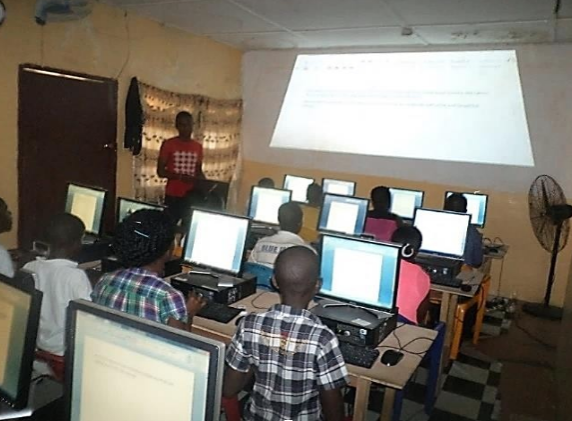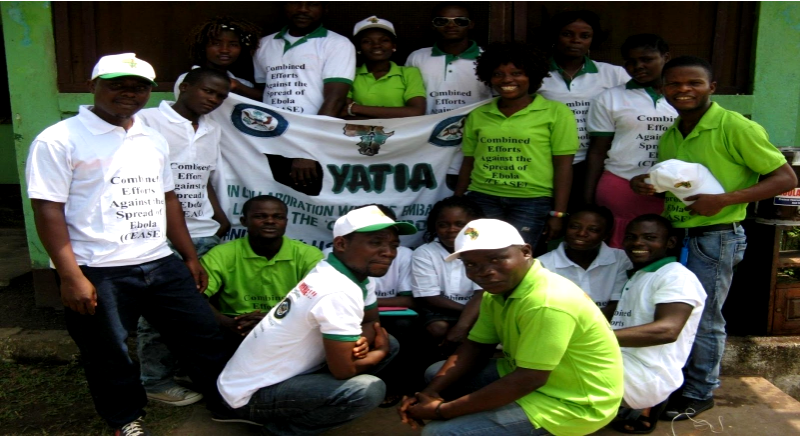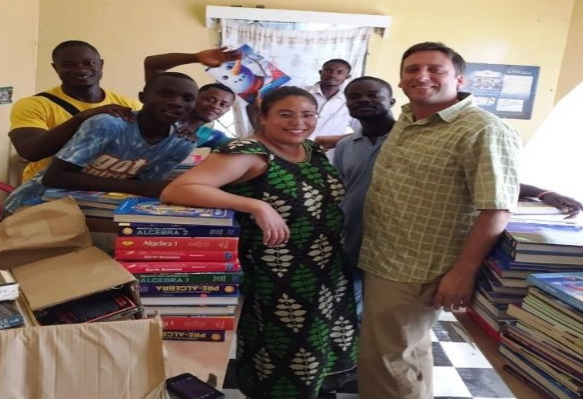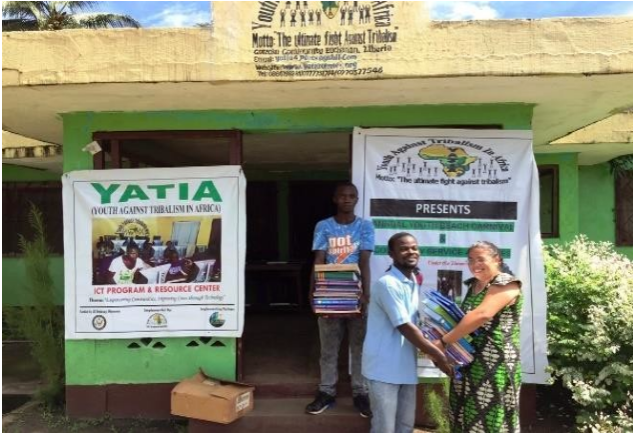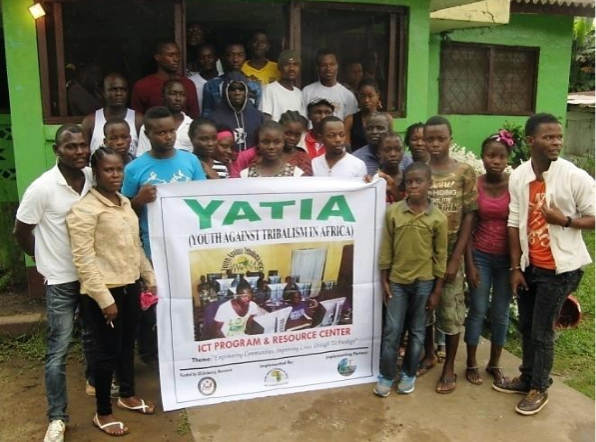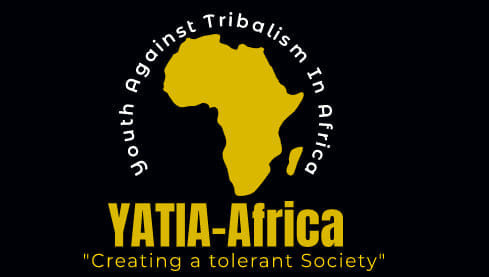Help support our community. Make an online donation to support most at-risk children through our PAGE-Liberia Program.
"We welcome partnership from donor organizations, community groups, youth, diverse groups, philanthropist and communities to enable us
reach our goals"
PAGE-LIBERIA Program
Providing Access to Grassroots Education (PAGE – Liberia) is an educational sustenance project designed by Youth Against Tribalism in Africa (YATIA) to work with vulnerable school going kids to help them stay in school in Grand Bassa County. Statistics have shown that many students in Liberia are dependent on scholarships and aid to pursue their education. This project is intended to help vulnerable students who are struggling to stay in school to achieve their goals. Our program objectives is to: instill the passion for learning into the minds of our students. These encourage competitions between students. Motivate students to seek academic excellence. Organize a County Science Fair Competitions among schools, and seek to bring out the hidden talents of impoverished and most at-risk students and expose their potential to the public
Improve and promote students’ academic performance in the STEM Courses. It also encourages students to acknowledge the value of education and gain access to educational materials.
PROJECT ACTIVITIES
PAGE-Liberia project most concentrated and focused activities include:
Mentoring and Counselling
In-School Mentoring Club
Essays Writing Competition
Quizzing Competition
Debate Competition
Science Fair Competition
Educational Support Packages
CEASE Ebola Program
In March 2015, a new sensation developed in Liberia, as the Ebola Virus Disease entered Liberia, through Lofa County, a consequence of traders coming from neighboring Guinea which has had a deadly hit of the killer disease. This disease opened a new page in the health page of our country, and perhaps the West African Region, as governments struggle to curtail the damage. The efforts of governments were futile against the speedy and fatal disease, thus NGOs, INGOs, and the international community joined the fight against the sweeping epidemic. As a means of helping the cause, the Youth Against Tribalism In Africa (YATIA), which is a local NGO campaigning against all forms of discrimination, joined the national fight against Ebola. The Youth Against Tribalism In Africa implemented the “Combined Efforts Against the Spread of Ebola” (CEASE) Project sponsored through a Federal Grant from the US Department of States through the US Embassy in Liberia. This project aimed at providing in-depth awareness on Ebola Transmission, Prevention and the distribution of sanitary materials including Clorox, tie soap, faucet buckets, etc. the project was also meant to redirect the attention of people towards the continuous effort of combating Ebola. The project developed a simplified Sensitization and Community Approach Manual that outlines the methods and procedures which provide exceptional attention to community acceptance, stakeholders’ participation, and general approval.
Free ICT Program
Building young people capacity through the provision of basic ICT skills has been the aim of many organizations and individuals in Grand Bassa County and Liberia at large. Both school going youth and many job seekers face rejection from acquiring jobs because they lack professional skills such as ICT, entrepreneur development among other pieces of training; some people graduate from high schools, colleges, and universities, yet cannot obtain a job because of the lack of basic capacities in these skills. It was based upon these conditions that this ICT program was launched in order to fill the gap. The project was implemented by the Youth Against Tribalism In Africa in partnership with its local implementing partner, AIDTECH is funded and partnered with the US Embassy in Monrovia through the US State Department. The project was focused on helping less fortunate students and individuals who have been turned down from jobs in employment, social inclusion and self-empowerment, due to the lack of capital to obtain basic ICT Skills. It was intended to provide job-related IT skills in Hard and Software, Desktop Publishing and Database Management to more than 2,000 persons over a period of five years – starting with 400 individuals annually; to meet with the fast pace of acquiring the skill and meet the demand of people yearning to obtain these skills. Programs within this project were strategized and mainly benefited people who are living in abject poverty, disabilities or inequalities and unemployment situations that have caused them to be socially and physically marginalized from the workings of the society. Thus, this intervention has helped to increase some level of job security, develop economic participation, reduced poverty and raised income sustainability among young people and job seekers in Grand Bassa County. The title of this project was “Empowering Communities, Improving Lives through Technology” and its goal was to “Reducing the High Rate of Unemployment, due to the lack of ICT Skills among the Youth populace of Buchanan City”. Nearly 80.9% of Vacancies advertised in Liberia require ICT Skill. Most people fear technology due to the high cost attached to acquiring the skill. This was why our project has helped to ease that fear and provided them with tuition-free Hi-Tech job-related skills. Most professions in the 21st Century require ICT skill, and it is not taught in about 88% of our high schools. About 85% of our society lack the knowledge and people that are fortunate to have computers on their own, cannot do anything with them. They sometimes play movies; games and music all day, while they long for an education in ICT that will help them become sustainable to their family and society. As a means of contributing to National Government effort to minimize income inequality, maximize job opportunities and curtail some of these issues in post-conflict Liberia, The project was also focused on helping less fortunate students and individuals who have been turned down from jobs employment, social inclusion and self-empowerment, due to the lack of capital to obtain basic ICT Skills. It has helped to provide job-related IT skills in Software, Desktop Publishing, and Database Management to 372 persons including youths, and adults over a period of 10 months; in order to help them meet the demands of the 21st Century job market. Because we disbelieve in gender disparity, 55.6% of the beneficiaries were women and girls, while 44.4% were men and boys. Thus, this intervention has helped to increase higher employment, develop economic participation, reduced poverty and raise income sustainability among young people and job seekers in Grand Bassa County.
Our Anti-Discrimination Campaign
The "End Ethnic Discrimination Against the Liberian Mandingos "When a nation unites, its peoples thrive" Campaigned was launched to help the Liberian Mandingo gain their full rights as citizens of the country. The Mandingoes who migrated to Liberia between 1500 and 1600 were traders, and they settled on the west coast as well as in the hinterland. Those who went to the hinterland migrated there with their Muslim traditions and were labeled strangers, meaning foreigners. However, the local tribal people did not turn them away; instead, in order to resolve the xenophobia crisis, they adopted King Ghana's isolation policy and made Mandingo Muslims live in separate areas of the town which they named "Stranger Quarters." The term "Quarters" refers to a separate residential area where one ethnic group sharing common family ties, common language, and common culture live as one family. These stranger quarters are known today in most towns and cities as" Mandingo Quarters." Now in modern-day Liberia, The “myth,” that is widely held belief among many Liberians that Mandingo are foreigners and that it was the late President, Samuel Kanyon Doe, who declared them (Mandingos) citizens of Liberia. This belief is traveling from one generation to another and creating hates, envy, and discrimination among people of the Mandingo tribe. About 50% of children under 15 are taught to discriminate against Mandingo children of their same age group. They are commonly referred to as "Mandingo Dogs" in public gatherings and places, getting the attention of other Liberian tribes to make fool of them. These people own most of the transport system in the country. To 21st Century Liberia, the Mandingoes are part of us and are Liberians, we need to embrace them as our brothers and sisters. In recent times, they have been fighting to put our country on the map, not in the name of Mali, Guinea, The Gambia, Ivory Coast or wherever their forefathers may have migrated from hundreds of years ago, they hold the Liberian flag, they love it, they embrace it, they fight for it wherever they are around the world. They only know Liberia, a land of their forefathers and fathers. We have to do away with the discrimination against the Mandingoes and their Muslim religion. Let's push forward and backward never. Mandingoes born in Liberia are Liberians. Liberia is all we have, let preserve it and forget this hate against one another. I care because I am a Liberian and this could be you too... Mandingoes are citizens and are positively contributing to the growth and development of our country. Please sign the petition and together let's end ethnic discrimination against the Liberian Mandingoes today. Follow and Support the Petition
CEASE Environment Program
Our “Community Effort to Address Squalor Environment (CEASE) Project, aimed at collaborating with coastal communities to empower them for environmental preservation, growth, and sustainability to address the environmental related issues to improve their livelihood and end income inequality within their communities. The community of Barconie which lies on the outskirts of Buchanan is populated with hundreds of vulnerable citizens wholly depends on the sale of fish for a livelihood. The community uses the mangrove for drying fish as a means of preservation, however new laws on environmental protection now prohibit this. This has caused serious challenges to the community as their fishes decay within hours when they are not dried; More besides the community, output of fish has rapidly declined. YATIA designed the CEASE Environment program to help coastal communities find alternative means to their livelihood. Through our engagements, we have helped coastal fishing communities for business growth and sustainability. Through this program, we are continuing to restore the livelihood of the communities by offering them vital knowledge for business and entrepreneurship in Small and Medium Enterprises (SMEs). We are building the capacity of local fishmongers on modern methods of storage and preservation to avoid decay of their fishes, and provide financial and managerial training skills for these fishmongers, allowing them to better manage and sustain their business. By empowering the community dwellers through the provision of durable nets to fishermen and small loans for local business start-ups, we have introduced a revolving community fund through a Community Savings Club that shall give out credits and small loans to women fishmongers. We are seeking partnership in any of our programs and activities from peace, youth development, environment and livelihood sustainability and global impact.
